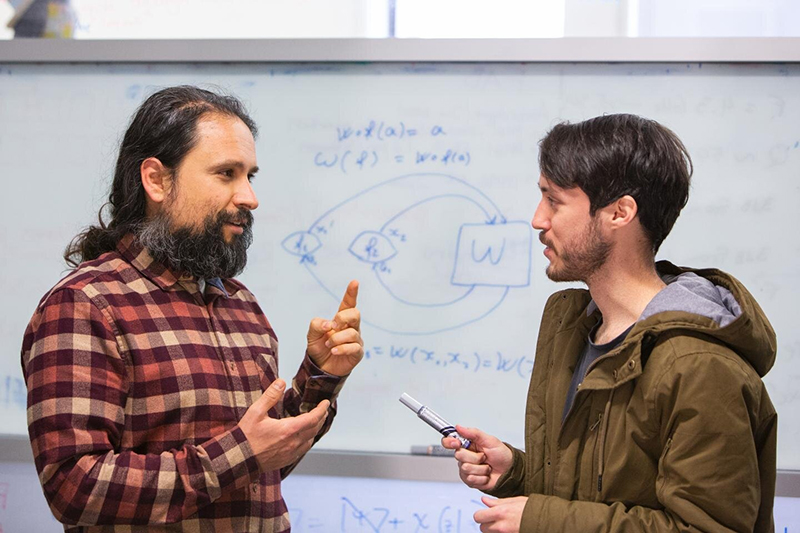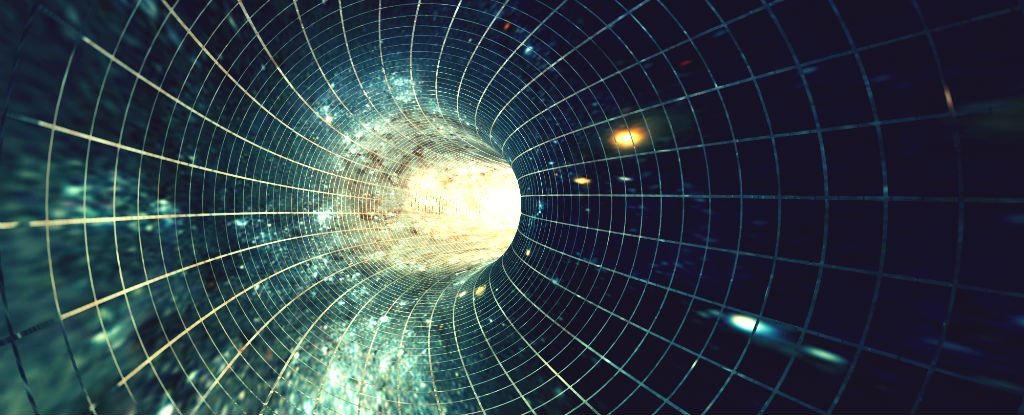No one has yet managed to travel through time – at least as far as we know – but the question of whether such a feat would be theoretically possible continues to fascinate scientists.
Like movies like The terminator, Donnie Darko, Back to the future and many others show that traveling around in time poses many problems for the fundamental rules of the universe: for example, if you go back in time and stop your parents from meeting, how can you exist to go back in time to go? in the first place?
It’s a huge fuss known as the ‘grandfather paradox’, but a few years ago physics student Germain Tobar, from the University of Queensland in Australia, discovered how to ‘square the numbers’ to make time travel feasible without the paradoxes.

“Classical dynamics says that if you know the state of a system at a given time, it can tell us the entire history of the system,” Tobar explained in 2020.
“Einstein’s general theory of relativity, however, predicts the existence of time loops or time travel – where an event can occur in either the past or future of itself – theoretically turning the study of dynamics on its head.”
What the calculations show is that space-time can potentially adjust itself to avoid paradoxes.
To use a current example, imagine a time traveler who travels to the past to prevent the spread of a disease. If the mission were successful, the time traveler would no longer have a disease to go back in time to defeat.
Tobar’s work suggested that the disease would still escape some other way, via some other route or method, which would resolve the paradox. No matter what the time traveler did, the disease would not be stopped.
Tobar’s work isn’t easy for non-mathematicians to dig into, but it explores the influence of deterministic processes (without any randomness) on any number of regions in the space-time continuum, and shows how both closed timelike curves (as predicted by Einstein) can fit within the rules of free will and classical physics.
“The math is correct – and the results are science fiction,” says physicist Fabio Costa of the University of Queensland, who oversaw the research.
 Fabio Costa (left) and Germain Tobar (right). (Ho Vu)
Fabio Costa (left) and Germain Tobar (right). (Ho Vu)
The study solved the problem with a different hypothesis, namely that time travel is possible, but that time travelers would be limited in what they did to avoid creating a paradox. In this model, time travelers have the freedom to do whatever they want, but paradoxes are not possible.
While the numbers may be correct, actually bending space and time to get to the past remains elusive – the time machines scientists have devised so far are so advanced that they currently only exist as calculations on a page.
Maybe we’ll get there one day – Stephen Hawking certainly thought it was possible – and when we do, this new research suggests that in the past we would be free to do whatever we wanted with the world: the world would adjust accordingly.
“No matter how you try to create a paradox, events will always adapt to avoid any inconsistency,” Costa said.
“The series of mathematical processes we discovered show that time travel with free will is logically possible in our universe, without any paradox.”
The research was published in Classical and quantum gravity.
An earlier version of this article appeared in September 2020.
